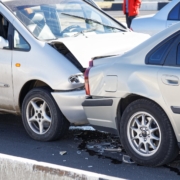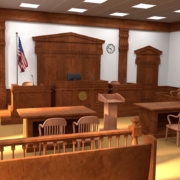The Pros and Cons of Lawsuit Settlement Loans
Lawsuit settlement loans, also known as pre-settlement loans or lawsuit funding, have become a popular option for plaintiffs seeking financial support during a legal battle. These loans are often marketed as a way to ease the financial burden of a lawsuit, providing plaintiffs with quick access to cash without any upfront costs. However, the controversy surrounding pre-settlement loans persists, with critics arguing that these loans can lead to high levels of debt and potentially unethical practices by funding companies.
In this article, we will explore the pros and cons of lawsuit settlement loans. We will examine the benefits and drawbacks of pre-settlement funding and offer advice on when to consider this option as well as considerations to take into account when making a decision.
The Pros of Lawsuit Settlement Loans
Lawsuit settlement loans offer several benefits for plaintiffs, providing them with the financial support they need to pursue a legal case without incurring upfront costs. The following are some of the advantages of pre-settlement loans:
Access to Funds
One of the main benefits of lawsuit settlement loans is quick and easy access to funds. With a pre-settlement loan, plaintiffs can receive the cash they need to cover their expenses while their case is ongoing. Moreover, unlike traditional loans, there is no risk for borrowers, as they only have to repay the loan if they win their case.
Flexibility
Another advantage of pre-settlement loans is the flexibility they offer. Borrowers can use the funds in any way they wish, without restrictions on how the money is spent. In addition, if a plaintiff loses their case, they are not required to repay the loan.
Non-Recourse Funding
Another advantage of lawsuit settlement loans is that they are non-recourse. This means that the borrower is not personally liable for the loan and will only have to repay the amount borrowed if they win their case. In other words, if the plaintiff does not receive a settlement or judgment, they are not responsible for repaying the loan.
This is a significant benefit as it reduces the risk for borrowers and protects them from incurring more debt in case of an unfavorable outcome. With non-recourse funding, plaintiffs can pursue their case with peace of mind, knowing that they will not be held personally responsible for the loan in case they do not win.
No Credit Check
Unlike traditional loans, pre-settlement funding does not require a credit check. This means that plaintiffs with poor credit scores can still qualify for a loan. Lawsuit funding companies base their decision on the merits of the case, rather than the plaintiff’s credit history. This is a significant advantage for individuals who may not have access to other forms of credit and need quick access to funds to cover their expenses while their case is ongoing.
No Collateral Required
Another advantage of lawsuit settlement loans is that they are unsecured loans, meaning they do not require collateral. By contrast, traditional loans, such as personal loans or home equity loans, often require borrowers to put up collateral, such as a home or car, as a form of security. With pre-settlement loans, plaintiffs do not have to put up any collateral, making the loan less risky for the borrower. This is a significant benefit as it enables plaintiffs to get the funds they need without having to put their assets at risk.
Strengthens the Legal Claim
Lawsuit settlement loans can provide plaintiffs with additional leverage during negotiations and help to strengthen their legal claim. When a personal injury victim is struggling financially, they may be tempted to accept a settlement offer that is far lower than what their claim is actually worth. This is because they need the money to pay their bills and cover their expenses.
By taking out a pre-settlement loan, the victim has the financial relief they need to wait for a better settlement offer. And with the added financial security, the plaintiff’s attorney has more leverage during negotiations with the defendant or their insurance company.
The attorney can afford to be patient and wait for a fair and just settlement offer, rather than accepting a lower offer out of financial desperation. This can ultimately result in a significantly higher settlement amount, which is more in line with the actual value of the plaintiff’s claim.
Moreover, if the case goes to trial, the lawsuit settlement loan can help the plaintiff cover their expenses during the lengthy litigation process. This enables the attorney to pursue the case more effectively as they do not have to worry about their client’s financial situation, putting them in a far better position to recover maximum compensation.
The Cons of Lawsuit Settlement Loans
While pre-settlement loans offer several benefits, they also have some drawbacks. The following are some of the disadvantages of lawsuit settlement loans:
Higher Costs
One significant disadvantage of pre-settlement loans is that they can be expensive. Because these are non-recourse loans that the lender cannot collect anything on if the plaintiff does not win their case, they are considered high risk. As a result, the interest rates and fees associated with these loans are often much higher than traditional loans.
Ethical Concerns
There are also some ethical concerns surrounding pre-settlement loans. Some lawsuit funding companies have been accused of exploiting vulnerable plaintiffs and charging excessive interest rates and fees. However, there are several reputable lenders out there and it is important for borrowers to do their due diligence and research to find the right one for which to take out a pre-settlement loan. It’s also important for borrowers to carefully review the loan agreement and understand the terms and conditions of the loan before signing.
The bottom line is while pre-settlement loans can be a helpful financial tool for plaintiffs, they also come with some risks and potential ethical concerns. Before deciding to opt for pre-settlement funding, you need to weigh the pros and cons and consider all available funding options.
When to Consider a Lawsuit Settlement Loan
While pre-settlement loans can provide much-needed financial support to plaintiffs during a legal battle, they may not be the right option for everyone. Before deciding to take out a pre-settlement loan, plaintiffs should consider the following:
Timing of the Loan
One of the main reasons to consider a lawsuit settlement loan is when there is a need for funds before the case is resolved. Lawsuits can take a long time to reach a conclusion, and plaintiffs may need cash to cover their expenses during this time. In such cases, pre-settlement funding can provide the financial support needed to pay bills and cover expenses while the case is ongoing.
Considerations Before Applying for a Loan
Before applying for a pre-settlement loan, plaintiffs should carefully review the terms and conditions of the loan agreement. They should also evaluate other funding options, such as personal loans or credit cards, to determine which option is the most cost-effective. Plaintiffs should consider the potential risks and drawbacks of taking out a pre-settlement loan and weigh them against other funding options to decide which route is best for them.
In general, the best time for plaintiffs to consider a pre-settlement loan is when they need funds before their case is resolved and when they have evaluated all of their options and determined that this is the best option for their financial situation. By carefully considering the timing of the loan and doing their research before applying, plaintiffs can make an informed decision and avoid the potential pitfalls associated with pre-settlement funding.
Looking for Lawsuit Funding? Contact a Reputable National Lender
If you have decided that a lawsuit settlement loan is the right option for you, it’s important to find a reputable lender. But with so many funding companies out there, it can be difficult to know which one to trust.
Here are some key factors to consider when choosing a pre-settlement funding company, including:
- The interest rates and fees associated with the loan.
- The level of customer service provided by the lender.
- The lender’s reputation in the industry.
One lender that stands out from the rest is Direct Legal Funding. They offer loans at the most competitive rates and provide exceptional service to their clients. With years of experience in the industry, Direct Legal Funding has helped many plaintiffs get the financial support they need to pursue their legal cases.
Direct Legal Funding offers a wide range of pre-settlement funding options, and they work with plaintiffs across the country to provide customized funding solutions that meet their unique needs. Contact them today at 866-941-5588 to go over your options and apply for a risk-free low interest lawsuit loan.










